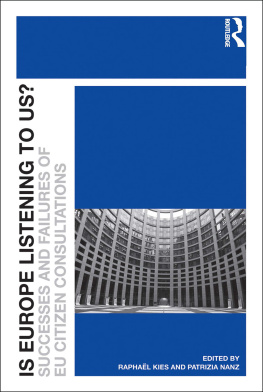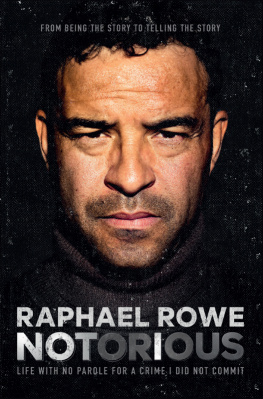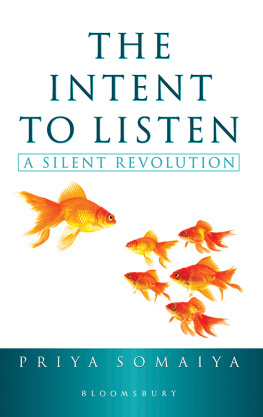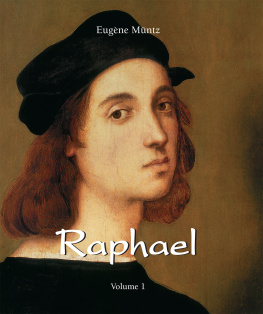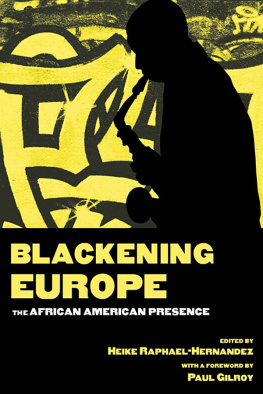IS EUROPE LISTENING TO US?
Is Europe Listening to Us?
Successes and Failures of EU Citizen Consultations
Edited by
RAPHAL KIES
University of Luxembourg, Luxembourg
PATRIZIA NANZ
University of Bremen, Germany
First published 2013 by Ashgate Publishing
Published 2016 by Routledge
2 Park Square, Milton Park, Abingdon, Oxon OX14 4RN
711 Third Avenue, New York, NY 10017, USA
Routledge is an imprint of the Taylor & Francis Group, an informa business
Copyright Raphal Kies, Patrizia Nanz and the contributors 2013
Raphal Kies and Patrizia Nanz have asserted their right under the Copyright, Designs and Patents Act, 1988, to be identified as the editors of this work.
All rights reserved. No part of this book may be reprinted or reproduced or utilised in any form or by any electronic, mechanical, or other means, now known or hereafter invented, including photocopying and recording, or in any information storage or retrieval system, without permission in writing from the publishers.
Notice:
Product or corporate names may be trademarks or registered trademarks, and are used only for identification and explanation without intent to infringe.
British Library Cataloguing in Publication Data
A catalogue record for this book is available from the British Library
The Library of Congress has cataloged the printed edition as follows:
Kies, Raphael.
Is Europe listening to us?: successes and failures of EU citizen consultations/By Raphael Kies and Patrizia Nanz.
pages cm
Includes bibliographical references and index.
ISBN 978-1-4094-5435-9 (hbk. : alk. paper)ISBN 978-1-3155-8985-5 (ebk.)ISBN 978-1-3171-1277-8 (epub) 1. Political participationEuropean Union countries. 2. CitizenshipEuropean Union countries. I. Nanz, Patrizia. II. Title.
JN40.K54 2013
323.042094dc23
2012043457
ISBN 9781409454359 (hbk)
ISBN 9781315589855 (ebk-PDF)
ISBN 9781317112778 (ebk-ePUB)
Contents
Raphal Kies and Patrizia Nanz
Mundo Yang
Dawid Friedrich
Raphal Kies, Monique Leyenaar and Kees Niemller
Pierangelo Isernia, James Fishkin, Jrg Steiner and Danilo Di Mauro
Julien Talpin and Laurence Monnoyer-Smith
Romain Badouard
La Roger
Graham Smith
John Gastil
List of Figures
List of Tables
List of Contributors
Romain Badouard is a post-doc researcher at the Center for the Sociology of Innovation (Mines ParisTech). His researches address the political stakes of web technologies in various contexts: e-participation, open government and Internet governance. His PhD dissertation dealt with online political participation at the European level.
James Fishkin is Professor in the Department of Communication at Stanford University. Fishkin is a widely cited scholar on his work on deliberative democracy. Along with Robert Luskin, he has pioneered a model of polling called the Deliberative Poll. He is the author of The Voice of the People: Public Opinion and Democracy (Yale University Press, 1995) and Debating Deliberative Democracy (with Peter Laslett) (Blackwell Publishing Limited, 2003).
Dawid Friedrich is Assistant Professor for International Relations at the Center for the Study of Democracy at the Leuphana University Lneburg, Germany. His research interests cover European and Global Democracy, the relation of law and politics and questions of post-national personal rights and citizenship. He is the author of Regulated Deliberative Participation. The Presence and Future of an Organised Civil Society in the European Union (forthcoming) and Transnational Civil Society and the European Union, in David Bailey and Uwe Wunderlich (eds) The European Union and Global Governance A Handbook (2008).
John Gastil is Professor in the Department of Communication at the University of Washington, where he specializes in political deliberation and group decision making. He is the author of Political Communication and Deliberation, The Deliberative Democracy Handbook, Democracy in Small Groups and other scholarly books and articles.
Pierangelo Isernia is Chair of the Department of Social, Political and Cognitive Sciences and Professor of International Relations and Research Methodology at the University of Siena. His research interests are in public opinion and foreign policy, attitude change and deliberative democracy He is series editor (with Maurizio Cotta) of the Oxford University Press INTUNE series on European Integration and he has published several articles in professional journals and edited books on these topics.
Raphal Kies holds a PhD from the European University Institute and is currently a researcher at the University of Luxembourg. His main research interests are: deliberative democracy, e-democracy, electoral behavior, and European integration. Two recent publications are Promises and Limits of Web Deliberation (Palgrave, 2010) and Luxembourg: The inclusive challenge in a local state, in J. Loughlin, F. Hendriks and A. Lidstrom (eds), The Oxford Handbook of Local and Regional Democracy in Europe (Oxford University Press, 2010) (with Patrick Dumont and Philippe Poirier).
Monique Leyenaar is Professor of Comparative Politics, Radboud University, Nijmegen, Netherlands. Her main research interests are citizens participation, democratic and electoral reform, and gender and politics. Two recent publications are Challenges to Womens Political Representation in Europe, in Signs: Journal of Women in Culture and Society 34:1, 2008, 17; Citizen Jury, in N. Kersting (ed.), Moderne politischer Partizipation. Eine Einfuehrung (Wiesbaden: VS Verlag fr Sozialwissenschaften, 2008), 209221.
Danilo di Mauro holds a PhD in Political Science at the Italian Institute of Human Science (SUM) in Florence. He was Post-Doctoral fellow at the University of Siena and Marie Curie Research Fellow at the European University Institute (EUI). His main research interests are in International Relations and Middle East Studies, European and Democracy. Some of his recent works has been published in the Italian Review of Political Science, the European Integration Online Papers-EIoP and in several book chapters. He is the author of the monograph The UN and the Arab-Israeli Conflict: American Hegemony and UN Intervention since 1947, published by Routledge.
Laurence Monnoyer-Smith gives lectures on technology assessment and participatory democracy at the University of Technology of Compigne, France. She is the head of Costech Unit Research (Cognition and Technological Systems), the human sciences research laboratory of the University. Her work is focused on the uses of ICTs in politics in order to enhance political participation: electronic voting, deliberation platforms, participatory procedures. She has recently published Communication and Deliberation: technological challenges and transformation of citizenship, Paris, Herms Lavoisier, 2010 (in French) and Normative Experience in Internet Politics (along with C. Meadel and F. Massit-Follat), Paris, Presses des Mines, 2012 (in English).

